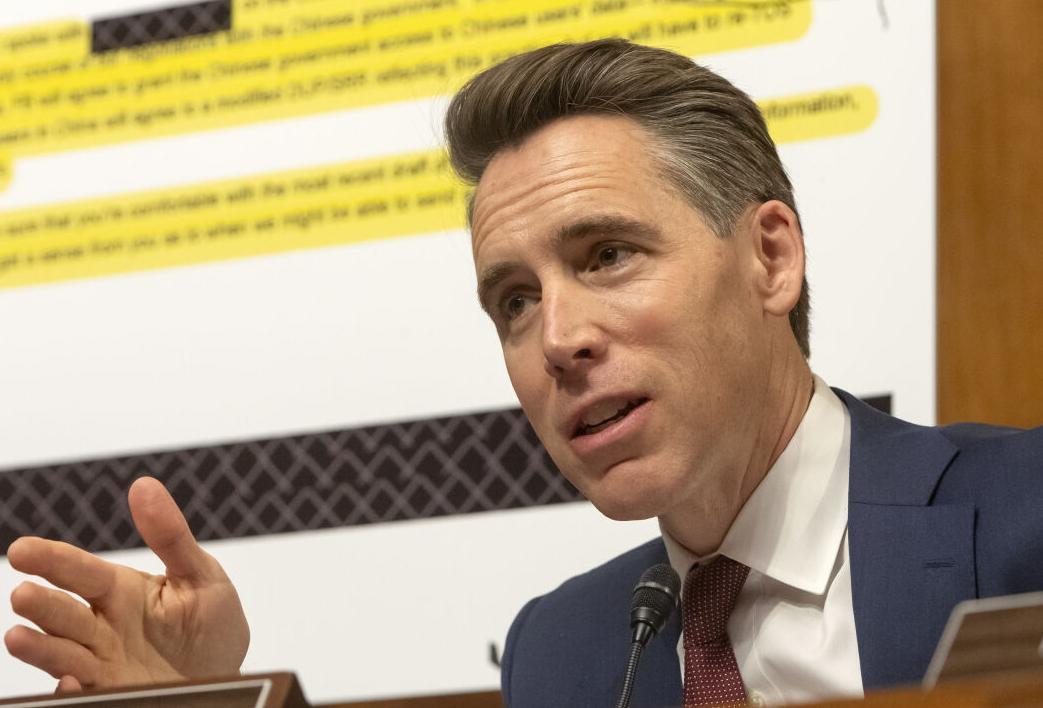As congressional Republicans eye Medicaid cuts that would eviscerate health care for working people and endanger rural hospitals, a call for compassion and political sanity is coming from a source that hasnŌĆÖt historically been a bastion of either: U.S. Sen. Josh Hawley.
President Donald Trump ŌĆ£has promised working-class tax cuts and protection for working-class social insurance, such as Medicaid,ŌĆØ MissouriŌĆÖs senior senator wrote in an op-ed published Monday in, of all forums, .
ŌĆ£But now a noisy contingent of corporatist Republicans ŌĆö call it the partyŌĆÖs Wall Street wing ŌĆö is urging Congress to ignore all that and get back to the old-time religion: corporate giveaways, preferences for capital and deep cuts to social insurance,ŌĆØ wrote Hawley. He warned that ŌĆ£slashing health insurance for the working poorŌĆØ is ŌĆ£both morally wrong and politically suicidal.ŌĆØ
People are also reading…
As an editorial board that has long called out extremism from the Missouri Republican on various issues ŌĆö including calling for his resignation after his shameful key role in the outrage of Jan. 6, 2021 ŌĆö let us say this plainly: Hawley is right (about this, at least), and his party should listen to him.
Medicaid is the federal-state health care program for the poor that covers about 70 million Americans nationwide, including more than 1 million Missourians and more than 3 million Illinoisans. U.S. House Republicans are currently patching together a budget deal that would trim some in future spending ŌĆö largely from Medicaid ŌĆö in order to help fund the of TrumpŌĆÖs 2017 tax-cut package, which is currently set to expire in 2028.
Despite Republican assurances that those original 2017 tax cuts would ŌĆ£pay for themselvesŌĆØ by spurring economic activity and that they would primarily aid regular Americans, the opposite has, predictably enough, turned out to be true. The cuts mostly benefited high-end taxpayers and corporations, which made a mockery of the premise that they would reinvest those savings to create jobs instead using them largely for stock buybacks that only helped their investors.
The nonpartisan Congressional Budget Office has that the original 2017 tax cuts will add upwards of $2 trillion to the federal deficit in all ŌĆö and that extending those cuts, as Republicans now want to do, would ultimately push that cost to about $4.6 trillion.
Extending the tax cuts for (primarily) the rich will require either adding significantly to the deficit or making major spending cuts. Contrary to the fiction peddled by Elon Musk, gutting foreign aid, medical research grants and other relatively modest expenses wonŌĆÖt get anywhere near covering it. Only defense spending and entitlements ŌĆö Medicaid, Medicare and Social Security ŌĆö contain enough money to do that.
HawleyŌĆÖs political history is as problematic as any in his party when it comes to health care. As Missouri attorney general, he signed on to a multistate lawsuit seeking to effectively end the Affordable Care Act (ŌĆ£ObamacareŌĆØ) with no realistic replacement for the millions of Americans who rely on it. And he didnŌĆÖt buck his party as Missouri Republicans stubbornly fought Medicaid expansion for a decade until the stateŌĆÖs voters finally forced the issue via referendum.
That said, HawleyŌĆÖs more recent project to remake himself and his party as a populist friend of working people appears to have some meat to it. That includes his calls to focus tax cuts on areas like payroll taxes ŌĆö which, unlike the trickle-down nonsense his party still preaches with its supply-side religion, would actually put money in the pockets of working people who would spend it and thus spur the economy.
HawleyŌĆÖs piece in the Times contains his obligatory genuflection to Trump, crediting the presidentŌĆÖs stated opposition to Medicaid cuts without noting TrumpŌĆÖs alarming habit of suddenly reversing major policy stances based on (it often seems) little more than his shifting moods. And nowhere in HawleyŌĆÖs op-ed does it express the logical conclusion that in order to preserve Medicaid and other programs important to working people, Republicans should ditch their quest to extend the 2017 tax cuts for the rich.
Still, Hawley is right, especially on this point: ŌĆ£If Congress cuts funding for Medicaid benefits, Missouri workers and their children will lose their health care. And hospitals will close. ItŌĆÖs that simple. And that pattern will replicate in states across the country.ŌĆØ
It is, in fact, that simple. And if congressional Republicans proceed with their plan to throw their own struggling constituents to the economic wolves for the sake of again coddling the rich, we and many others will be there to remind them that they were warned by one of their own partyŌĆÖs more prominent voices.
The Editorial Board













